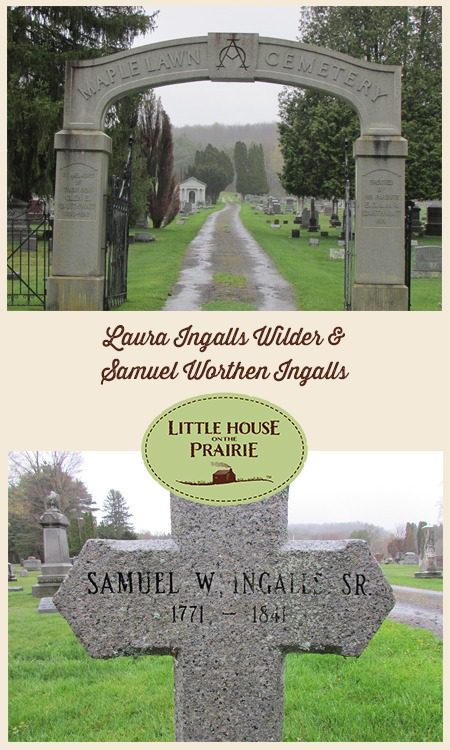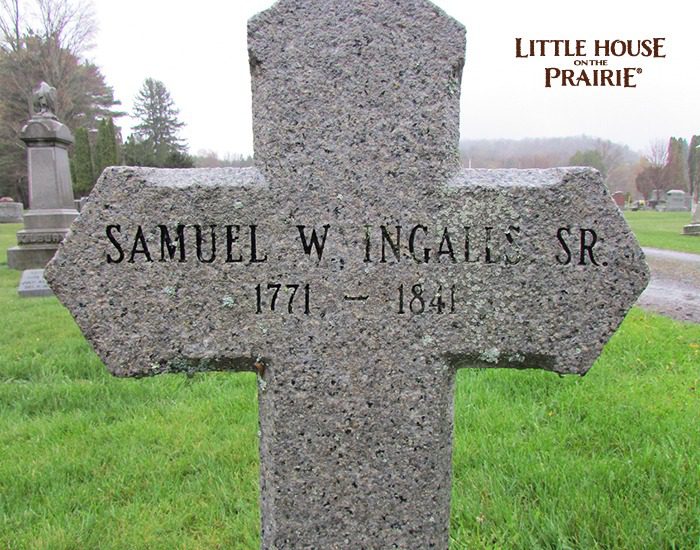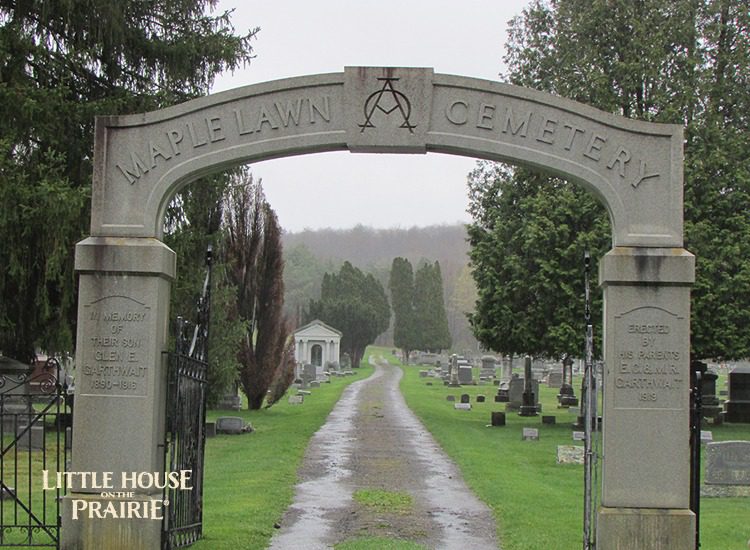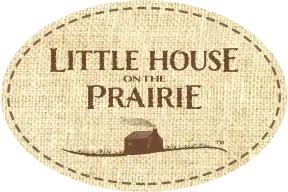As a child who’d practically memorized the Little House book series, I was entranced by the idea of Laura Ingalls Wilder as an “untutored housewife,” whose fiction suddenly sprang to life fully formed when she was in her sixties. As an adult, I learned that the widespread notion that Wilder was a self-taught genius with no training as a writer, no genetic legacy or years of hard work or multiple drafts, was wildly romanticized and inaccurate.

More recently, in her annotated Pioneer Girl and earlier biography, Laura Ingalls Wilder: A Writer’s Life, Pamela Smith Hill demonstrates the process by which Wilder transformed herself from columnist to memoirist to novelist. Many studies have also illuminated Rose Wilder Lane’s great success as a writer and her role in assisting with her mother’s work. Furthermore, some, such as Rebecca Brammer at the Beyond Little House website, have speculated that Wilder inherited her writing talent from her great grandfather, Samuel Worthen Ingalls, known as “The Unlearned Poet” throughout the western New York region where he lived.
Some of Ingalls’ poems survive in files at the Cuba Historical Society in Cuba, New York, home of many of Laura Ingalls Wilder’s ancestors and the birthplace of her father, Charles Ingalls. Samuel, who settled in western New York sometime after 1818, wrote poems with big, blustery titles like “Lines Written on the Great Hail and Windstorm That Passed Thru the Counties of Cattarraugus and Allegany In the Spring of 18-4” and “Lines Written on David D. How, Who Was Executed at Angelica, County.” Printed in 1894 in a collection called Rhymes of an Unlearned Poet, these works suggest that the formidable puritanical father in the Little House in the Big Woods story of Grandpa and the Pig was equally formidable and puritanical in his writing. They also suggest that he saw himself as something of a chronicler of the events, weather, landscape, and people of his region.
This is a mantle Wilder took up in her own work, her descriptions of weather and landscape being among her most striking talents. However, Samuel’s poetic presence is more intimidating. “Lines Written on the Great Hail and Windstorm. . . “ contains three uses of the word dreadful, three variations on the word fright, and additional references to lightning, thunder, tempests, whirlwinds, destruction, desolation, hail, torrents, ruins, distress. The verbs are vivid ones: mangled, hurled, swept, fled, burst, shakes, rolled. An all-powerful God presses nature into submission, making “the forest nod,” and the storm serves as a caution to sinners, “puffed up with vanity” and “empty as the wind”. He writes:
How uncertain are all things below
That we do here possess
One hour can sweep them all away
Or sink us in the dust.
While Samuel Ingalls cautions readers not to forget that God keeps the earth and sea balanced “on his almighty hand,” he also assures them that they can take comfort in God’s mercy and love.

Samuel Ingalls, Charles Ingalls' grandfather, was a well-known poet in his time. Courtesy of Sophie McCabe.
Wilder’s natural world is equally powerful but far more indifferent. In On the Banks of Plum Creek, she describes the creek in this way: “This was not like wolves or cattle. The creek was not alive. It was only strong and terrible and never stopping. It would pull her down and whirl her away, rolling and tossing her like a willow branch. It would not care.”
Both Laura Ingalls Wilder and her great-grandfather were preoccupied with the weather, but Ingalls’ writing is oversized, full of bombastic pronouncements while Wilder works on a smaller scale. Ingalls’ heavy-handedness throws into relief Wilder’s gentle lyricism and skill at using weather not just to create mood, but to raise the stakes and heighten narrative tension.

Maple Lawn Cemetery, Courtesy of Sophie McCabe
The contrasts between them can be seen in side-by-side excerpts. Samuel Ingalls describes the beginning of a storm in detail:
The clouds in great commotions were,
And dreadful to behold,
While forked lightning streamed along
And thunders loud did roar.
When Wilder describes a snowstorm in The Long Winter, she is more understated, but details are carefully selected to devastating effect: “The window was a white blur of madly swirling snow. Snow had blown under the door and across the floor and every nail in the walls was white with frost.” This description continues to build with quiet confidence: “All day and all night the house trembled, the winds roared and screamed, and snow scored against the walls and over the roof where the frosty nails came through. In other houses there were people, there must be lights, but they were too far away to seem real.”
Wilder shows none of her ancestors’ puritanical impulse to remind us of the hand of God, but she clearly has a keen respect for the power of nature, her detail and sentence rhythms creating an ominous undertone. “There was no wind,” she writes in On the Banks of Plum Creek. “The grasses were still and the hot air did not stir, but the edge of the cloud came across the sky faster than the wind. The hair stood up on Jack’s neck. All at once he made a frightful sound up at that cloud, a growl, and a whine.”
Both Wilder and Ingalls tend to celebrate the independent spirit who embodies a strong work ethic, takes initiative, and confronts hardship, though in two poems in the Cuba Historical Society collection, Ingalls’ subjects are ultimately defeated, having nothing left but their good character. Wilder is far more interested in the stubborn endurance of the human spirit, its ability to face hardship and prevail, than in pathos and woe.
“It can’t beat us!” Pa said.
“Can’t it, Pa?” Laura asked stupidly.
“No,” said Pa. “It’s got to quit sometime and we don’t. It can’t lick us. We won’t give up.”
Then Laura felt a warmth inside her. It was very small but it was strong. It was steady, like a tiny light in the dark, and it burned very low but no winds could make it flicker because it would not give up.
—The Long Winter
Wilder’s efforts reveal more sophistication and writing experience than her great grandfather’s, and her worldview has shifted considerably from his more rigid and austere vision. Nevertheless, his poetry feels like a direct ancestor to her prose, embodying fascinations with similar subject matter and a sense of the necessity of capturing through language the character of their home regions, the impact of the natural world, and the effects of hardship and determination on the human spirit.
Nancy McCabe is Professor of Writing and Director of the Writing Program at University of Pittsburgh at Bradford. Her most recent book is From Little Houses to Little Women: Revisiting a Literary Childhood. You can see the trailer for this book here . She is also the author of three previous books and her essays have received a Pushcart and been recognized six times on Houghton-Mifflin Best American notable lists. She regularly blogs about reading, art, and travel for Ploughshares.


Hi,
Who make printed the edition of 1895, as he was dead since 1841. I read that the poems were published in Angelica in 1825. so why another edition in 1895 ? Have you any idea ? Many thanks
I would love to find a photo of Samuel Worthen Ingalls and even more so his sister Joanna who is my 5th Great Grandmother. I just found out I was related to the Ingalls a few years ago.
Here’s a map of Allegheny County, NY
https://www.loc.gov/resource/g3803a.la000474/?r=0.183,0.581,0.041,0.056,0
In the Town of Cuba, north of the Village, is the house of an “A. Ingalls”.
Could this be Charles’ birthplace?
Hi Nancy – am enjoying reading your various posts and seeing your pictures. I am leading a poetry workshop at Laurapalooza, and a search on Samuel led me here. I would love to see and share some of Samuel’s poetry. I have written to the Cuba Historical Society, but if you have any written down, that might be faster, if you are willing to share. Thank you!
HI Holly, Yes, I’d be happy to share! Contact me at ngm4@pitt.edu. Look forward to meeting you at Laurapalooza!
Regarding the photo attached, hand written in pencil and labeled, Samuel Ingalls, that was discovered in the Cuba Historical Society Museum in Cuba, NY…My perfect guess would be that this is a photo of Samuel H. Ingalls, brother of Fred and Emma, which were (also) found within the photo album at the Cuba Museum, son of Lansford’s brother, John W. Ingalls and wife, Elizabeth. — This is definately not a photo of Laura’s great grand father, Samuel Worthen Ingalls, Sr., nor his son, Samuel Worthen Ingalls, Jr. — Samuel was a common first name among the Ingalls family. — I haven’t been able to locate any further information on SAMUEL H. INGALLS, who is (probably) pictured here. This SAMUEL did have a brother, Fred, and a sister, Emma, who was (also) found within this photo album.